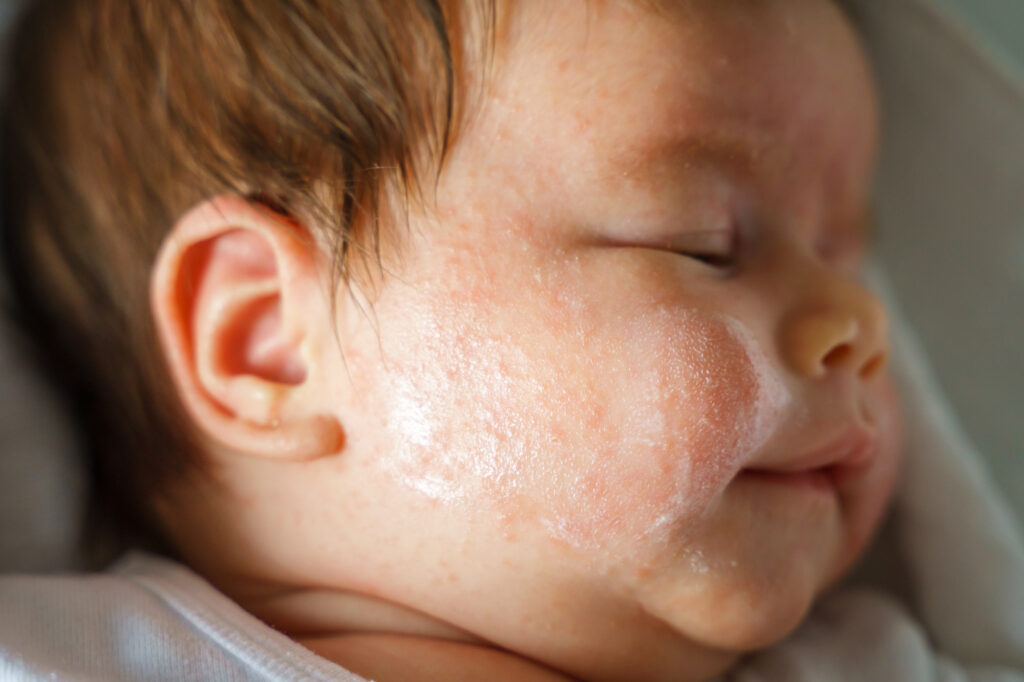Understanding Allergies and Asthma in Infants and Toddlers
Allergies and asthma are common conditions that can significantly impact the health and well-being of infants and toddlers. This blog provides an overview of these conditions’ causes, symptoms, diagnosis, and management to help parents and caregivers navigate these challenges effectively.
Causes of Allergies and Asthma in Young Children
Allergies: In infants and toddlers, allergies are typically triggered by pollen, dust mites, pet dander, certain foods, and insect stings.
Asthma: Asthma is a chronic respiratory condition characterized by inflammation and narrowing of the airways. Allergens, respiratory infections, and environmental factors can trigger it.
Genetic Factors: A family history of allergies or asthma increases the likelihood of these conditions in children, as genes play a crucial role in the immune system’s response to allergens.
Environmental Factors: Early childhood exposure to tobacco smoke, pollution, and respiratory infections can contribute to the development of asthma and allergic reactions. The hygiene hypothesis suggests that reduced exposure to infections in early life might increase susceptibility to allergic diseases.

Symptoms to Watch For
Recognizing allergies and asthma symptoms early can lead to timely intervention and better management.
Allergies:
- Skin Reactions: Hives, eczema, and redness.
- Respiratory Issues: Sneezing, runny or stuffy nose, and coughing.
- Gastrointestinal Symptoms: Vomiting, diarrhea, and abdominal pain may signal food allergies.
Asthma:
- Coughing: Persistent cough, especially at night or during physical activity.
- Wheezing: A whistling sound during breathing.
- Shortness of Breath: Difficulty breathing, rapid breathing, or chest tightness.
Diagnosis and Testing
Accurate diagnosis is essential for effective management. Pediatricians and specialists use a combination of medical history, physical examination, and diagnostic tests.
Allergy Testing: Skin pricks and blood tests (such as specific IgE tests) can identify particular allergens that cause reactions.
Pulmonary Function Tests: Spirometry can assess lung function in older toddlers. In younger children, observing symptoms and responses to asthma medications is crucial.
Management and Treatment
Managing allergies and asthma involves a multifaceted approach tailored to each child’s needs.
Avoidance of Triggers: The first step is to identify and minimize exposure to allergens. This may involve using air purifiers, maintaining a dust-free environment, and avoiding known food allergens.
Medications:
- Allergies: Antihistamines, nasal corticosteroids, and, in severe cases, epinephrine auto-injectors for anaphylaxis.
- Asthma: Inhaled corticosteroids, bronchodilators, and leukotriene modifiers. Asthma action plans are essential for managing acute episodes.
Immunotherapy: Allergy shots or sublingual tablets may be recommended for long-term desensitization to specific allergens.
Education and Support: Educating parents and caregivers about the condition, proper use of medications, and emergency response plans is critical. Support groups and counseling can also provide emotional support and practical advice.
Allergies and asthma in infants and toddlers require vigilant care and a proactive approach to management. Parents and caregivers can significantly improve their children’s quality of life by understanding the causes, recognizing the symptoms, and implementing effective treatment strategies. For more information or to schedule a consultation with a specialist, please contact our office.